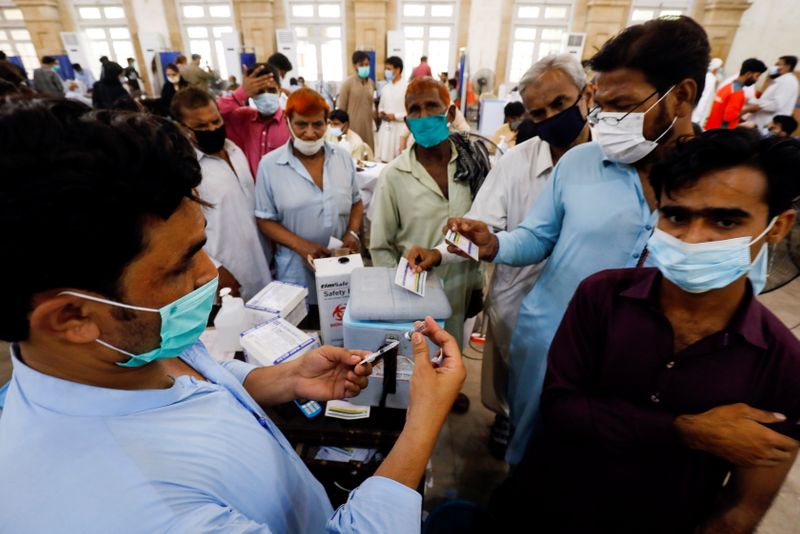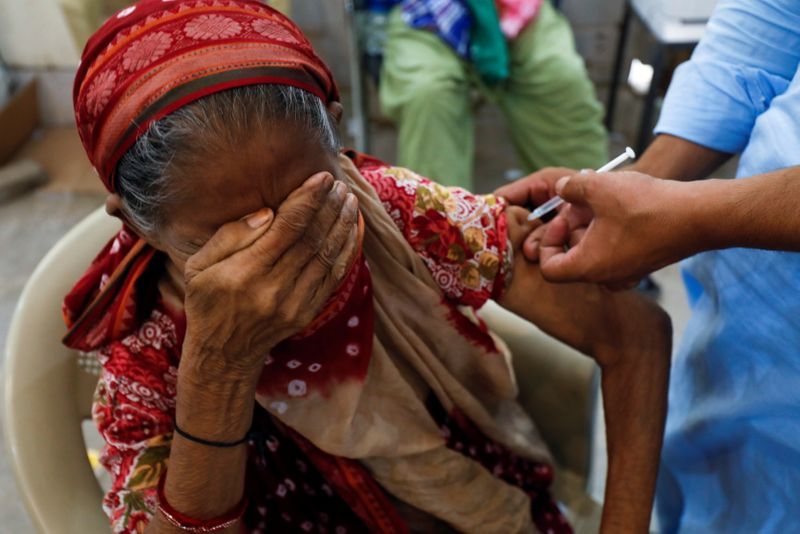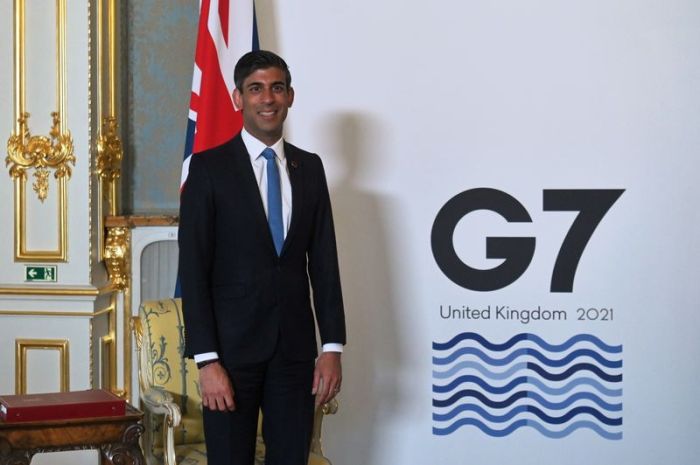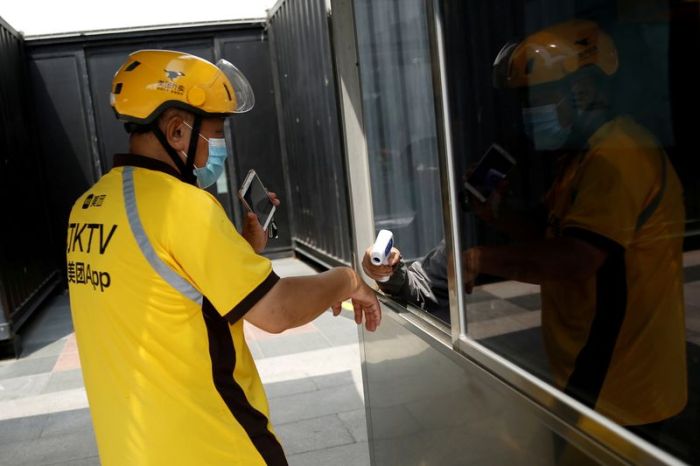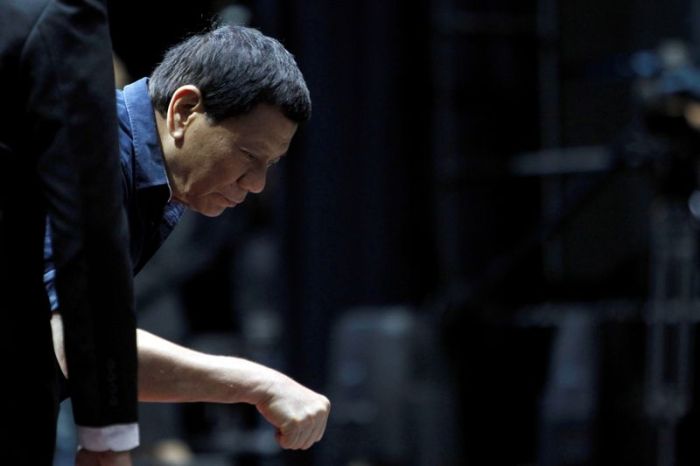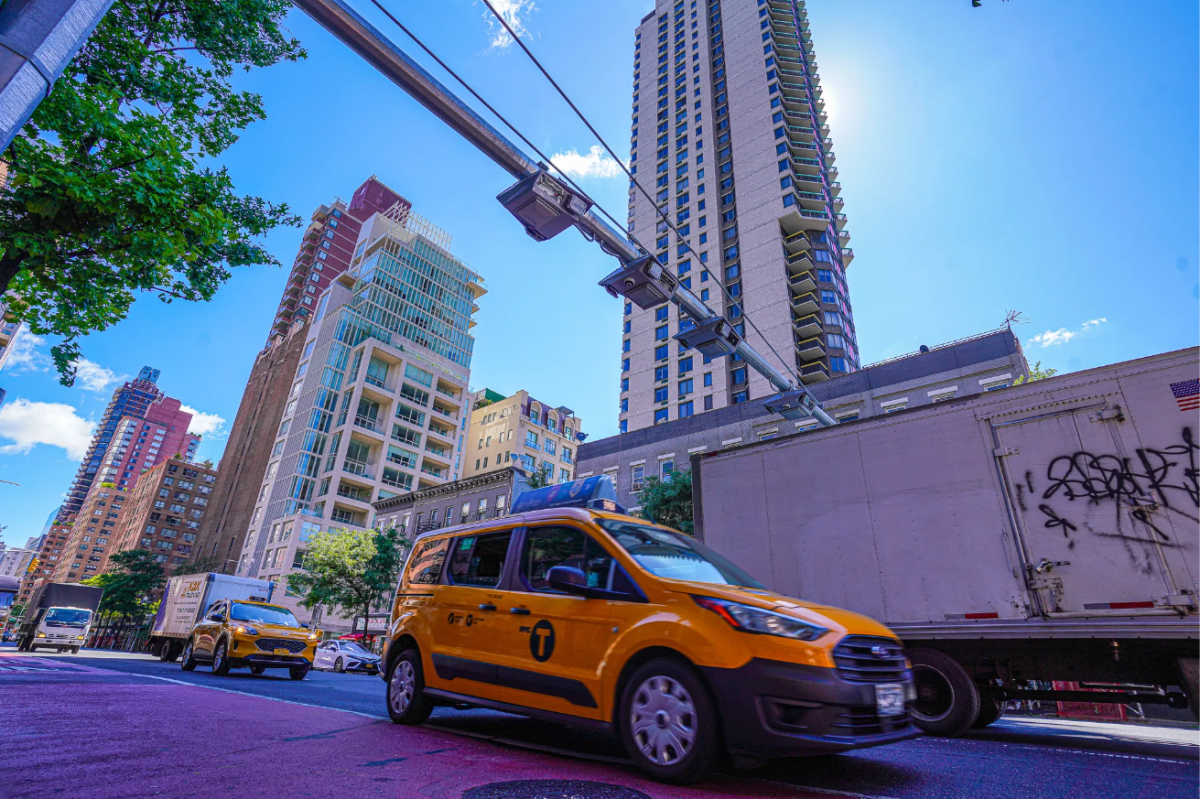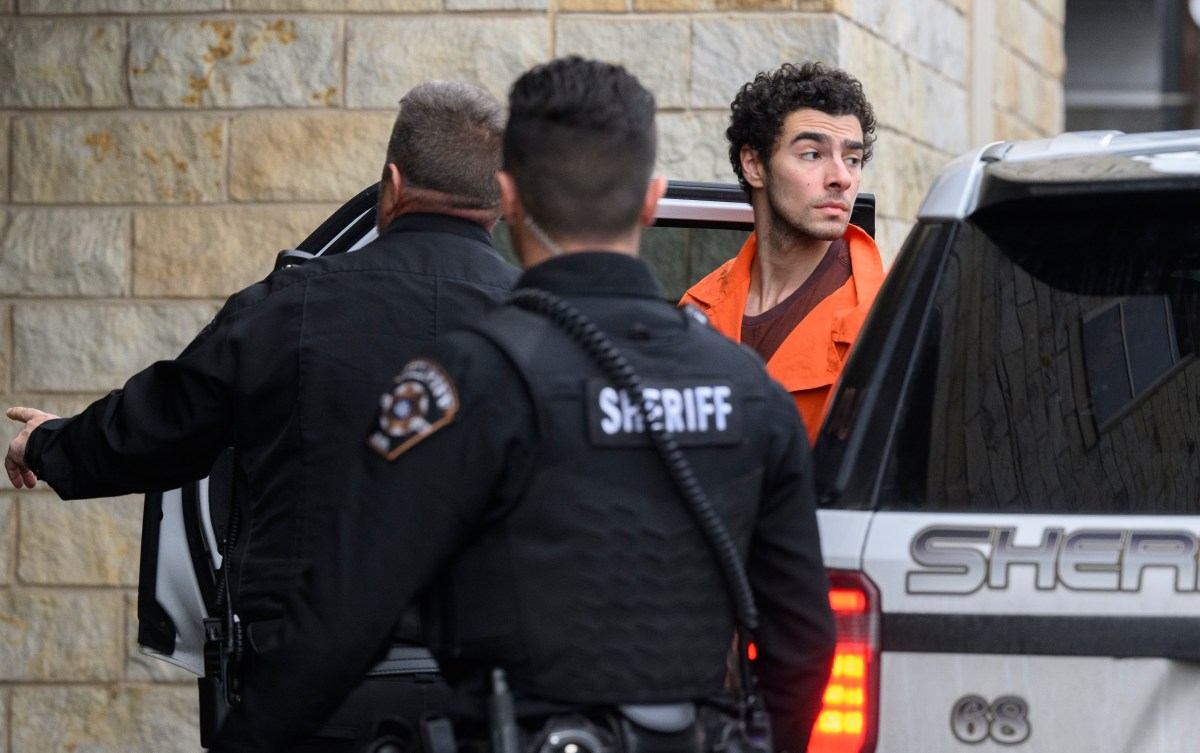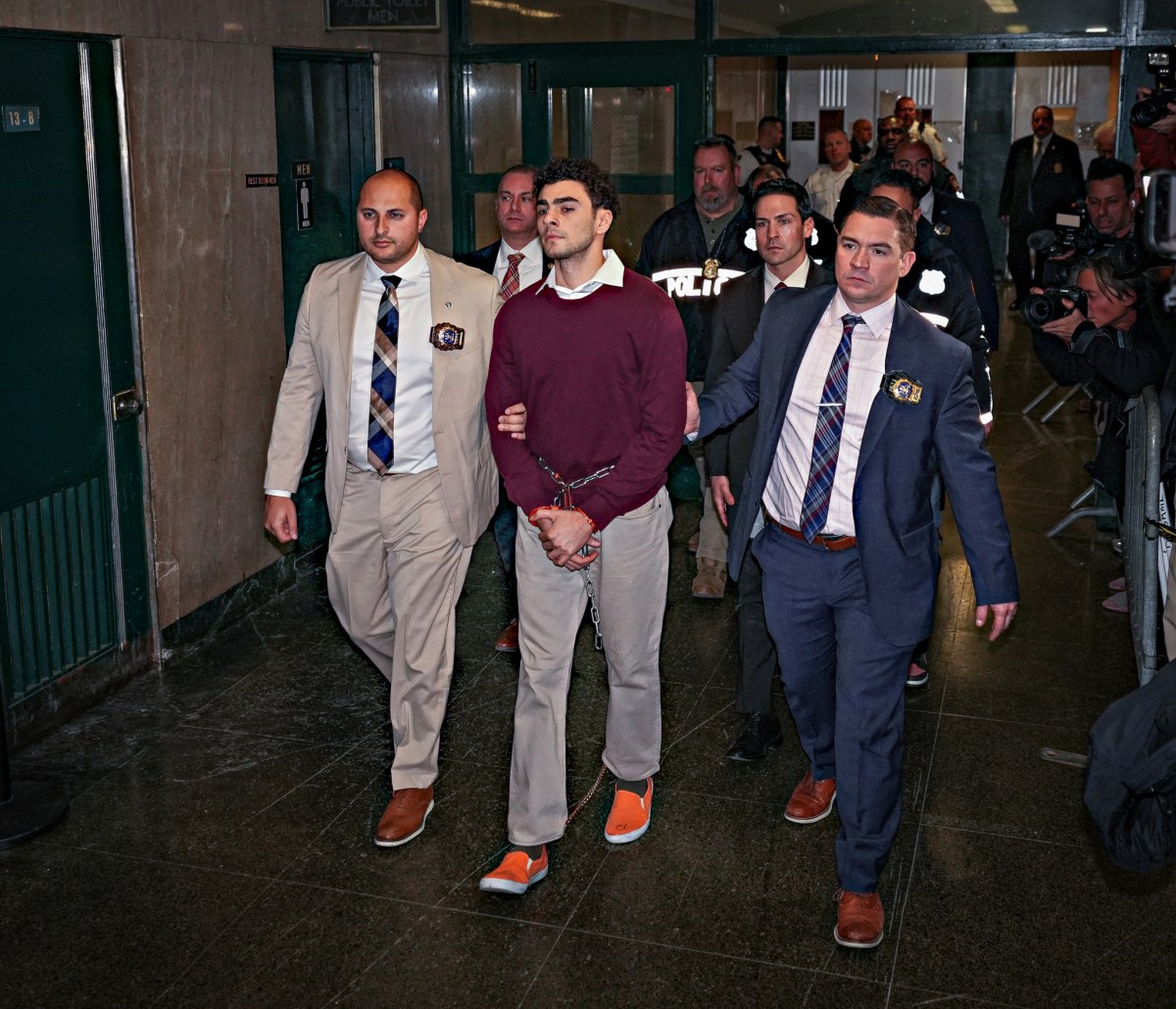ISLAMABAD (Reuters) -Pakistan said on Wednesday it will commit to spend $1.1 billion on procuring COVID-19 vaccine to inoculate eligible adults.
Pakistan hailed the 10 million doses of vaccines already administered as an important step toward its goal of vaccinating eligible people by year end.
The Economic Coordination Council (ECC) “expressed the government’s commitment to provide $1.1 bln for procurement of COVID-19 vaccine,” the finance ministry said in a statement.
It said the money will be spent to inoculate between 45 million and 65 million eligible adults this year in the country of 220 million.
The ECC approved $70 million on Wednesday to top up $130 million it sanctioned in May.
The vaccine will be procured by military run National Disaster Management Authority (NDMA), the statement said.
“Thank God, we have succeeded in administering 10 million vaccine (doses),” the minister in-charge for COVID-19 operations, Asad Umar, told a ceremony to mark the milestone in Islamabad.
“Our target is to vaccinate up to 70 million people by the end of this year,” he said of the total adult population eligible for the vaccination out of a 220 million nation.
Pakistan faced initial vaccination hesitancy and a shortage of supplies but it started a mass vaccination campaign late last month.
It has relied heavily on ally China for vaccine supplies with three out of six approved does coming from Chinese producers: Sinopharm, SinoVac and CanSinoBio.
Coronavirus infections surged in recent months but have started subsiding. Pakistan has registered a total 936,131 cases and 21,453 deaths.
On Wednesday, 1,118 new infections and 77 deaths were reported.
Pakistan has secured more than 18 million doses in donations and purchases and has also started producing the single dose Chinese CanSinoBio vaccine, with the hope of making 3 million doses a month.
The minister appealed to the public to get the shot and help restore normal life and business.
“The more quickly we vaccinate the more quickly we get rid of this pandemic,” he said.
(Reporting by Asif ShahzadEditing by Robert Birsel and David Gregorio)

